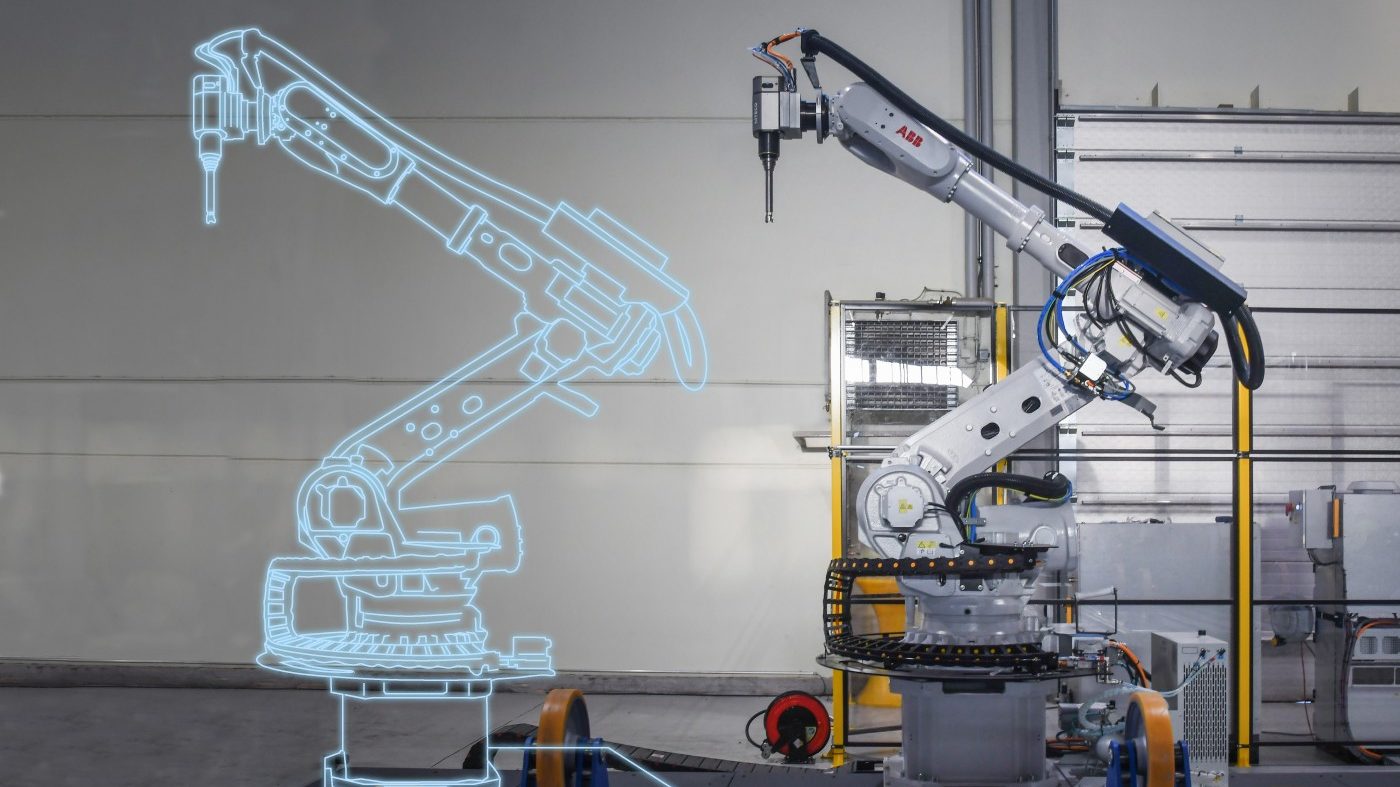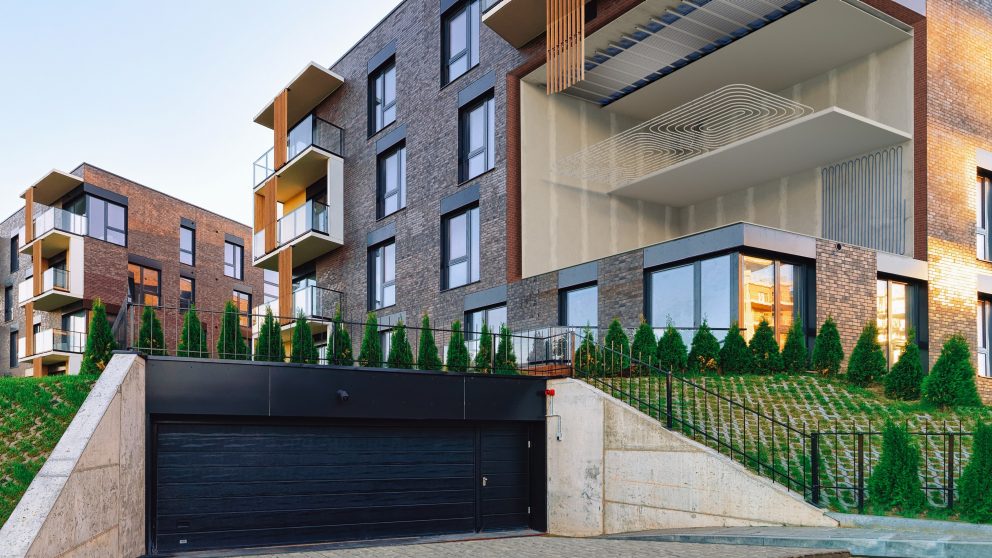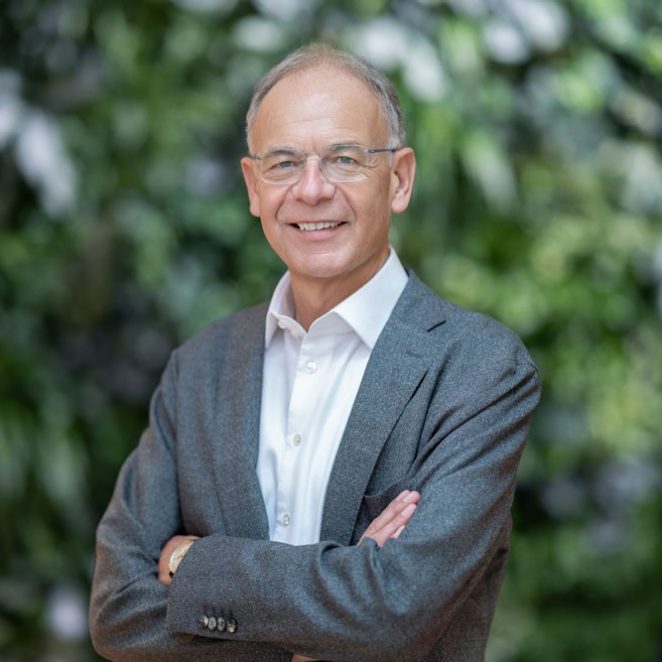 © Pipelife International
© Pipelife International
 © Pipelife International
© Pipelife International
- With its forward-looking applications and system solutions, Wienerberger drives automation and digitalization in the construction industry
- Industry 4.0 solutions for optimized performance and enhanced safety
- Digitalization helps to simplify processes at construction sites and saves energy and raw materials
Vienna – As a trailblazer in modern building construction and sustainable housing, the entire Wienerberger Group is working on state-of-the-art system solutions to advance innovation and digitalization in the construction industry. Over the past ten years, the company has completely realigned its strategy and evolved into a full-range provider of innovative, sustainable and digital system solutions for energy-efficient building construction, renovation, and water management.
“Since the early days in the history of our company, it has always been our ambition to improve people’s quality of life and set new standards for the construction industry. To this end, we develop climate-neutral and circularity-oriented solutions for the future and contribute toward ensuring that future generation will enjoy the same opportunities as we do today. As the pacesetter in our industry, we also want to take full advantage of digitalization. Thanks to our innovative strength, we have already designed numerous Industry 4.0 solutions that enable sustainable building construction and benefit our customers, employees, and shareholders, as well as the generations coming after us.”
Digital twins: Efficient production and sustainability
Wienerberger is working on numerous projects aimed at optimizing performance in production, simplifying processes at the construction site, and saving energy and raw materials. Digital twins are among the fastest growing Industry 4.0 concepts: As virtual copies of real objects, systems or processes, such as production plants, they serve to optimize performance and efficiency in a virtual environment. In 2020, Wienerberger introduced its first digital twin at the Haparanda plant in Finland. Since that time, over 200 production lines at ten production sites have been equipped with digital twins. Based on the operating data thus obtained, sustainable savings in raw materials have been achieved without compromising on the high level of quality. As an added benefit, delivery times can be calculated more reliably.
3D models, 3D printing, and automated construction robots
Additionally, Wienerberger is working on 3D models for product development and visualization, the optimization of automated 3D printing, and the use of automated construction and brick-laying robots. Since its inception, the technology of automated 3D printing has made continuous progress. 3D printing facilitates development processes and internal communication. By means of three-dimensional prototypes, designers can adapt product properties and functions much more easily. To address the challenges currently confronting the construction industry, ranging from a shortage of skilled labor to efficient manufacturing, Wienerberger also resorts to automation. In 2022, a masonry robot erected the first complete clay block house for Wienerberger. The robot not only accelerates the brick-laying process, but also excels in terms of precision, laying bricks with absolute perfection. Minute movements due to wind and vibrations are being measured in real time and offset. This forward-looking technology makes residential construction faster, less expensive and more efficient and, at the same time, guarantees a high standard of quality. Additionally, the individual bricks are cut in a way that helps to save resources and reduces the volume of waste generated.
Less strenuous physical labor but improved performance and safety in production
As a leading international provider of building material and infrastructure solutions, Wienerberger’s proposition is not only to supply products of first-rate quality, but also to be as resource-efficient as possible in their production. Automation and the use of robots on brick production lines contribute to the achievement of this objective. Workers are relieved of ergonomically demanding activities, while production output and safety are increased.
Take the example of a thin-brick plant in Denver, in the US State of Colorado, taken over by Wienerberger in 2007: Working with clay cutting machines from the 1990s, the plant achieved a production output of less than 400 bricks per hour and cutting machine. In 2009, the production site was completely rebuilt and, thanks to a modified cutter design, production output, including an additional drying process, was more than tripled. In 2021, the production line consisting of two cutters was completely automated. As a result of these steps, sales of thin bricks doubled every five years. At the same time, the workers freed from their former activities through automation were reassigned to higher-value tasks.
In Rome, in the US State of Georgia, repetitive and physically strenuous work has also been automated and taken over by robots. This serves not only to increase production output, but also to achieve a higher level of quality: While it used to take up to 12 workers to unload roughly 2,000 bricks per hour, a single worker equipped with a tablet computer now controls a robot equipped unloading machine that is capable of unloading up to 38,500 bricks per hour from three kiln cart at a time. Additionally, the bricks are automatically sorted to ensure a more uniform color distribution in each packing unit.
Thanks to automation and the use of robots, sustainable savings in packaging materials are possible and the number of delivery trips is reduced. In this way, the company supports the European Green Deal, its goal being to become climate-neutral by 2050 through the decarbonization of production processes, an innovative product portfolio, and new technologies. In line with its core values of respect and trust, Wienerberger thus intends to create the prerequisites for continuing on its value-creating growth path in the years to come.
Press Kit
Kontakt

Claudia Hajdinyak
Head of Corporate Communications
Wienerberger AG
© Daniel Hinterramskogler +43 664 8283183 Send e-mail


